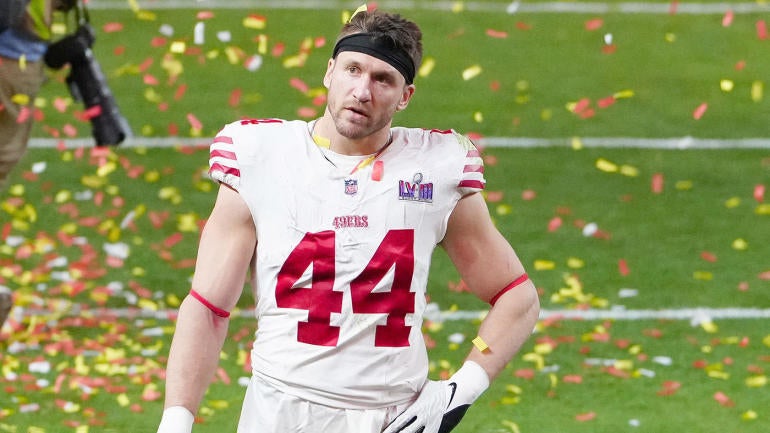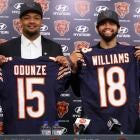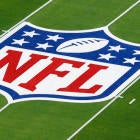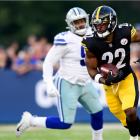
For the first time under the postseason rules implemented in 2022, a Super Bowl went into overtime. The Kansas City Chiefs and San Francisco 49ers were all tied up at 19 a piece at the end of regulation and needed extra time to decide who would win Super Bowl LVIII. Overtime rules have been debated, caused controversy and been changed over the years, so fans were given a refresher before the free football took place.
As it turns out, some players were also in need of a rule explanation.
Multiple 49ers players admitted that they did not know the overtime protocol and assumed it was the same as the regular season, where a touchdown wins the game, even if the other team hasn't had possession.
In the playoffs and the Super Bowl, both offenses get a chance to have the ball and if the game is still tied after both teams have a possession, it then goes into sudden death, unless the first drive of the game is a safety, which ends the contest. The 49ers won the coin toss ahead of the second overtime in Super Bowl history and elected to receive the ball.
Many have criticized head coach Kyle Shanahan's decision, but he says he wanted to ensure the Niners would have the ball if things were tied up after each team had the ball. Some of his players thought the reasoning for taking the ball was because a touchdown wins the game, as it does in the regular season. They were surprised to find out that was not the case.
"I didn't even know about the new playoff overtime rule, so it was a surprise to me," San Francisco defensive lineman Arik Armstead said after the loss. "I didn't even really know what was going on in terms of that."
The new NFL playoff overtime rules were a surprise to Armstead 😅 pic.twitter.com/NZMaC6cVYA
— 49ers on NBCS (@NBCS49ers) February 12, 2024
Armstead said he learned the rules when they were put on the Jumbotron at Allegiant Stadium.
Niners fullback Kyle Juszczyk said the team had not rehearsed an overtime situation.
"You know what? I didn't even realize the playoff rules were different in overtime," Juszczyk said. "I assumed you just want the ball to score a touchdown and win. I guess that's not the case. I don't totally know the strategy there ... We hadn't talked about it, no."
Here's #49ers FB Kyle Juszczyk admitting he wasn't aware of the new overtime rules:
— Ari Meirov (@MySportsUpdate) February 12, 2024
"I assumed you just want the ball because you score a touchdown and win."pic.twitter.com/6SHkhBgPOu https://t.co/NwBQxilmM4
Shanahan said he discussed a potential overtime with the analytics staff, but it seems those talks did not make their way to all the players.
Even if a touchdown would end the game, the 49ers did not do enough to get in the end zone of their first and only drive of OT. The drive ended with a 27-yard field goal from Jake Moody, to put the 49ers up 22-19. The field goal meant a touchdown from quarterback Patrick Mahomes and the Chiefs offense would be a win for Kansas City.
In important scenarios, Mahomes is typically clutch, and Sunday night was no exception. Mecole Hardman scored a touchdown on the Chiefs drive to give the team their second Super Bowl in two years.
Chiefs players also seemed to be well versed on the rules, which was very different than what was going on on the other sideline. Kansas City safety Justin Reid said the team began going over the new overtime rules back in training camp, via The Ringer.
Defensive lineman Chris Jones said the team had a plan in place if the game warranted more time. "We talked through this for two weeks, Jones said. "How we was going to give the ball to the opponent; if they scored, we was going for two at the end of the game. We rehearsed it."
Below is a full look at the NFL overtime rules:
- The captain who lost the first overtime coin toss will either choose to possess the ball or select which goal his team will defend, unless the team that won the coin toss deferred that choice.
- Each team will have an opportunity to possess the ball in overtime.
- Each team gets three timeouts during a half.
- The same timing rules that apply at the end of the second and fourth regulation periods also apply at the end of a second or fourth overtime period.
- If there is still no winner at the end of a fourth overtime period, there will be another coin toss, and play will continue until a winner is declared.






















